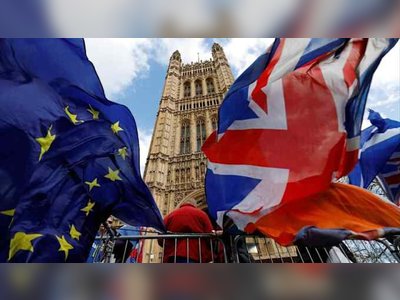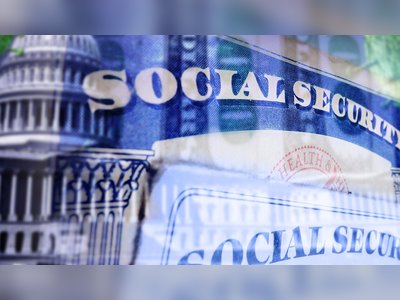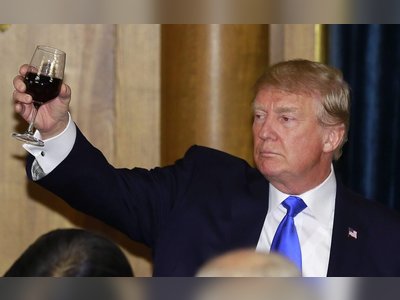German Coalition Member Voices Support for US Easing of Nord Stream Sanctions in Peace Negotiations
Social Democrats argue for lifting sanctions on Russian energy as potential avenue for peace in Ukraine.
BERLIN — A significant faction within Germany's political landscape is advocating for a reevaluation of sanctions imposed on Russian energy infrastructure as part of peace negotiations regarding the conflict in Ukraine.
Nina Scheer, a prominent member of the Social Democrats (SPD) and the party's energy spokesperson, expressed support for a potential U.S. move to ease restrictions on Nord Stream 2 AG. She characterized the existing sanctions as 'unlawful' and suggested that lifting them might align with international law.
'In the interest of pursuing diplomatic paths to peace and ending the war of aggression against Ukraine, steps that could potentially support this process should be encouraged,' Scheer stated, highlighting the importance of diplomatic efforts in resolving the conflict.
Scheer is part of the SPD, which is scheduled to join a coalition government led by conservative Friedrich Merz.
She clarified that advocating for the easing of sanctions should not be interpreted as a deviation from Germany’s commitment to transition toward renewable energy sources.
'We must accelerate the transition to renewable energy.
This remains true no matter how sanctions on Nord Stream 2 are handled,' she emphasized.
Her remarks come in the wake of reports about Donald Trump’s envoy, Steve Witkoff, who is pushing for the lifting of sanctions on Russian energy operations, including the controversial Nord Stream 2 pipelines that transport gas from Russia to Germany.
This initiative reflects a broader diplomatic effort initiated by Trump’s team to restore relations with Russia, as Witkoff has conducted several discussions with Russian officials, focusing on easing tensions and potentially revitalizing economic connections, all while excluding Ukrainian representatives from these talks.
In Germany, concerns regarding the proposition of reactivating the pipeline remain prevalent, particularly in light of the significant reduction of the country’s dependence on Russian gas after the full-scale invasion of Ukraine in 2022. The German Ministry for Economic Affairs and Climate Action firmly stated that the Nord Stream 2 pipeline is not certified and lacks legal approval; therefore, its usage is not under consideration regardless of any developments regarding U.S. sanctions.
This viewpoint has garnered support, with Michael Gahler, the foreign policy spokesperson for the European People's Party group in the European Parliament, voicing strong objections to the potential easing of sanctions.
He articulated fears that such a decision could undermine international law, compromise Ukraine's position, and embolden Russian President Vladimir Putin's actions.
Gahler noted that a new German government would not endorse reactivating the Nord Stream pipeline, asserting, 'We will not make the same mistake twice.'
Nina Scheer, a prominent member of the Social Democrats (SPD) and the party's energy spokesperson, expressed support for a potential U.S. move to ease restrictions on Nord Stream 2 AG. She characterized the existing sanctions as 'unlawful' and suggested that lifting them might align with international law.
'In the interest of pursuing diplomatic paths to peace and ending the war of aggression against Ukraine, steps that could potentially support this process should be encouraged,' Scheer stated, highlighting the importance of diplomatic efforts in resolving the conflict.
Scheer is part of the SPD, which is scheduled to join a coalition government led by conservative Friedrich Merz.
She clarified that advocating for the easing of sanctions should not be interpreted as a deviation from Germany’s commitment to transition toward renewable energy sources.
'We must accelerate the transition to renewable energy.
This remains true no matter how sanctions on Nord Stream 2 are handled,' she emphasized.
Her remarks come in the wake of reports about Donald Trump’s envoy, Steve Witkoff, who is pushing for the lifting of sanctions on Russian energy operations, including the controversial Nord Stream 2 pipelines that transport gas from Russia to Germany.
This initiative reflects a broader diplomatic effort initiated by Trump’s team to restore relations with Russia, as Witkoff has conducted several discussions with Russian officials, focusing on easing tensions and potentially revitalizing economic connections, all while excluding Ukrainian representatives from these talks.
In Germany, concerns regarding the proposition of reactivating the pipeline remain prevalent, particularly in light of the significant reduction of the country’s dependence on Russian gas after the full-scale invasion of Ukraine in 2022. The German Ministry for Economic Affairs and Climate Action firmly stated that the Nord Stream 2 pipeline is not certified and lacks legal approval; therefore, its usage is not under consideration regardless of any developments regarding U.S. sanctions.
This viewpoint has garnered support, with Michael Gahler, the foreign policy spokesperson for the European People's Party group in the European Parliament, voicing strong objections to the potential easing of sanctions.
He articulated fears that such a decision could undermine international law, compromise Ukraine's position, and embolden Russian President Vladimir Putin's actions.
Gahler noted that a new German government would not endorse reactivating the Nord Stream pipeline, asserting, 'We will not make the same mistake twice.'
AI Disclaimer: An advanced artificial intelligence (AI) system generated the content of this page on its own. This innovative technology conducts extensive research from a variety of reliable sources, performs rigorous fact-checking and verification, cleans up and balances biased or manipulated content, and presents a minimal factual summary that is just enough yet essential for you to function as an informed and educated citizen. Please keep in mind, however, that this system is an evolving technology, and as a result, the article may contain accidental inaccuracies or errors. We urge you to help us improve our site by reporting any inaccuracies you find using the "Contact Us" link at the bottom of this page. Your helpful feedback helps us improve our system and deliver more precise content. When you find an article of interest here, please look for the full and extensive coverage of this topic in traditional news sources, as they are written by professional journalists that we try to support, not replace. We appreciate your understanding and assistance.











